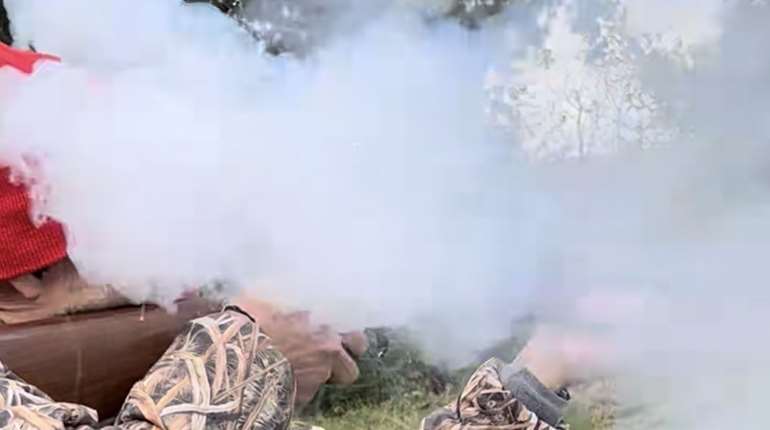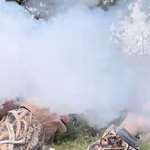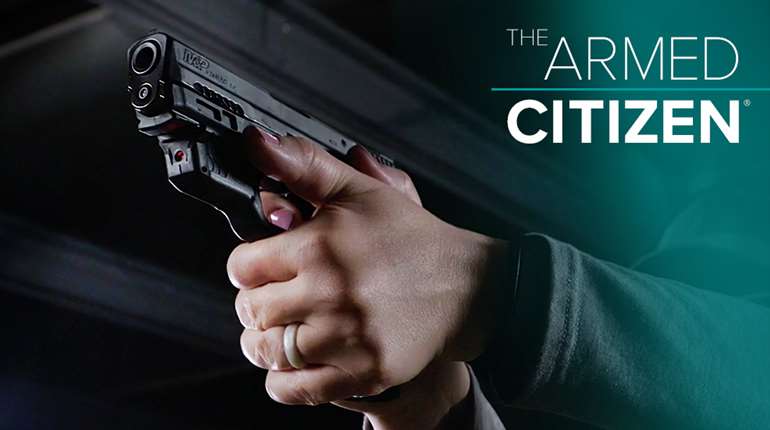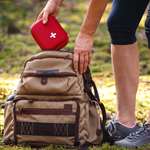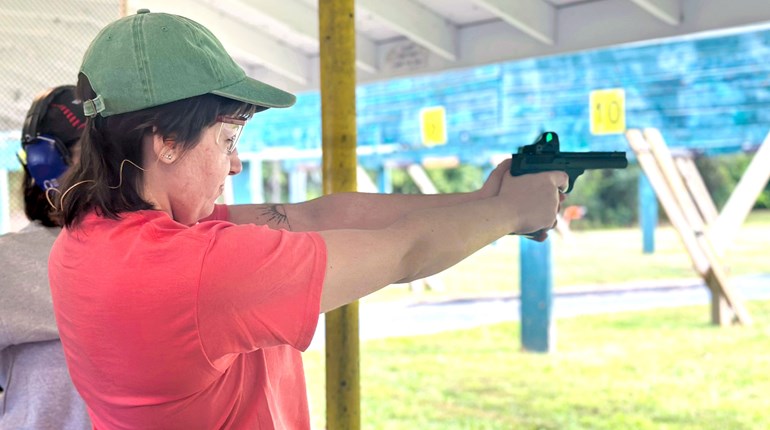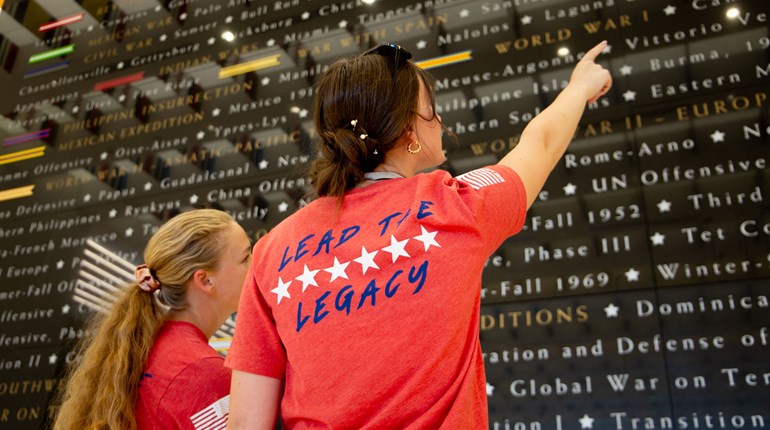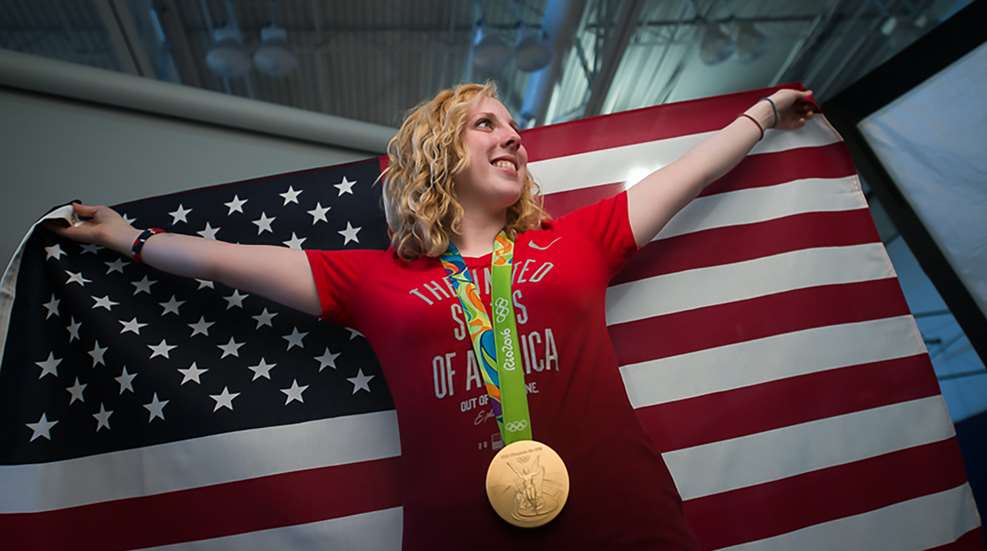
You may remember Olympic gold-medalist Ginny Thrasher from NRA Women’s inspiring story, Underdog to Wonder Woman. Now that she’s stateside after competing in the ISSF World Cup in India last month, she had the time to regale us with some of her international shooting memories. As a seasoned shooter and traveler, Thrasher has a unique perspective on shooting abroad, traveling with firearms and much more.
NRAW: In the United States there are so many motivations for having a gun, whether it’s for competition, hunting, defense, collecting, stress-relief … Have you found similar motivations behind shooting cultures abroad?
GT: It definitely varies country to country. Some countries have stricter rules about guns, and they also have different cultural beliefs about guns. But nobody, I would say, is negative. I think the shooting sports and especially the Olympic-style shooting sports that I participate in are so well-respected all over the world. If you go to a country where Olympic-style shooting is the only type of shooting that's allowed, it's even more well-respected and popular.
I think in America, we have so many different types of shooting that maybe our talent and our enthusiasm actually get spread out a little too much. Whereas in some other countries, that all gets funneled into Olympic Shooting, which can be really fun.
NRAW: Do you have a favorite shooting custom, culture or mindset that you've come across in another country?
GT: If you go to any small town in Germany, there is a little biergarten shooting range, and it's the thing that people do, after school and on the weekends. It's really through all ages too. If you're going to go to the shooting range, you're going to see an 8-year-old shooting air rifle off of a sandbag and you're going to see an 80-year-old shooting air rifle off a sandbag. And you're going to have people in the middle, who are usually more competitive.
Every winter there is this thing called Bundesliga. Bundesliga means “national league” in German, and all of these little clubs have teams, and there are different leagues. First league is the very top. It’s competitive and where the international athletes go. Then second league, third league and so on. I think there are five or six leagues, and basically every weekend they go and compete. It is so much fun because that's what everybody does and there’s so much cheering and a lot of spectators. It is a culture where it's not all win, win, win, everybody has to be the best at shooting, which I've seen in other countries. Instead, in Germany, it's very much this is what we do as a family. This is what we do as a community, and some people are really good and some people just do it for fun. And it’s all OK.
 NRAW: We recently published an article “How to Fly with a Gun.” Have you ever had any issues getting your competition rifle through customs?
NRAW: We recently published an article “How to Fly with a Gun.” Have you ever had any issues getting your competition rifle through customs?
GT: I will tell you, when you are at the airport, the number one thing you need is patience. Flying domestically with the firearm can be complicated, but when you're flying internationally, all the rules change per country and per airline. So you definitely need a lot of patience. I have found myself sometimes—because I fly a lot with firearms to a lot of different countries—at the check-in desk going, “No, just press that button. No, I don't have to do that; I have to do this.”
But you almost have to just let them work through it. Typically, if you have all of your ducks in a row and you are prepared with what you need as far as visas and gun permits and everything else, then it can be relatively simple. It just takes a long time. Even flying out of certain places can be interesting too. I flew out of China, and they literally sit and they open every box of ammo and they have to get the exact count. Most countries, they just ask, “Do you have ammo? How much do you have?” But in China they wanted to count every single round.
There are definitely some airports I don't fly in and out of, because they're not really gun friendly. Some U.S. airports, London and Charles de Gaulle in Paris can be a little iffy sometimes. It's not that they're any different than other airports; Newark should have the same rules as other airports, but there's a certain amount of it that is left up to human discretion, right?
When I was in college. I would always leave for my international trips out of either Washington, D.C. or Pittsburgh, and I would actually fly so much that the TSA guys knew me. It would be pretty funny, because I'd actually get through the airport a lot faster because they'd say, “Oh, it's just Ginny … Where are you going today?”
NRAW: What is something that you can't travel without?
GT: Sometimes when I get to the airport I'm really stressed out, because you always forget something right? On the way to the airport, I’m like, “OK, do I have my passport and do I have my ammo?” Because if you have your passport and your ammo, you're probably going to be OK. When I get on the plane, I relax a lot, because everything is out of my hands now, and it will be OK.
NRAW: Have you experienced any language barriers or differing terminology for your sport?
GT: It's really fun when you go to a World Cup, because everyone speaks a different language, and a lot of people speak English too. If there's maybe a whole team from Europe that speaks English except for one person, sometimes they can feel a little bit left out, which is tough. There are definitely more language barriers with the Asian countries because not as many people there speak English. But even though we can't communicate in a traditional sense, you have things in common, because you're living the same life and you have the same passion. So even if you can't speak, you point at things and you can communicate by being really excited with your body language.
There are people I have never spoken with directly but have seen a lot on the international circuit, and we have this dance of saying hi without actually saying anything, but it's still a really good connection. Technology has also helped with that. There are a lot of translate apps now, so that can be nice.
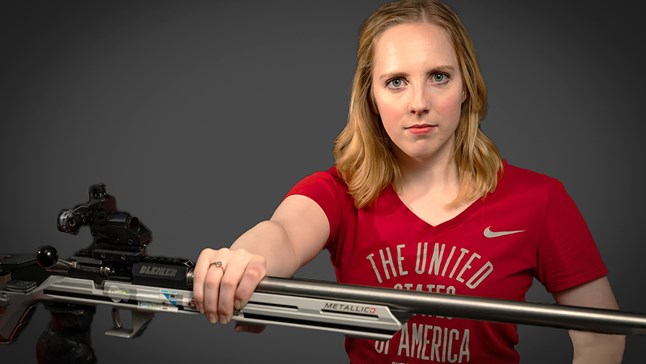
NRAW: Have you ever made a new friend by beating them in competition?
GT: Yes, I think so. I've actually made new friends by them beating me too. Obviously, we go to a competition and we all want to win; I want to win. People from every single country around the world want to win, but we also have this really deeply ingrained respect for our competitors, because we know exactly the effort they're putting in, how hard this sport can be and how challenging it is. At the end of the day, once the competition is over, you're friends with these guys.
NRAW: Do international ranges have any special or different rules?
GT: The rules for the actual range are typically not very different. But sometimes there are different rules depending on the country. So, for instance, in America if I fly in really late for a competition, we can normally just take the guns into the hotel and store them in our room with us overnight. And in most other countries that is 100 percent not allowed. So if you get into the airport at 2 a.m., you go to the range right away, and you put your stuff in the range, and then you go to the hotel.
NRAW: What’s the craziest thing that has happened to you while attending a competition out of the country?
GT: When I was 17 years old on my second international trip ever for shooting, I learned a very important lesson about respecting other people's cultures. I flew into Azerbaijan, and Azerbaijan in the summer is very, very hot. So it's about 100 degrees Fahrenheit, and I didn't think anything of it, I was just wearing shorts because it was 100 degrees, but culturally that’s not a place where women traditionally wear shorts.
And I already stood out enough because I'm very fair. I have bright blue eyes, and I'm very short, so in America, I don't stand out, but sometimes when I go to other countries, I do. We were walking around the city, and this woman came up to me and she hit me on the side of my head with her purse and called me some names that I cannot repeat right now. I was just stunned, because it was totally unexpected. I was disrespecting their culture by not conforming to traditional dress code standards.
Now, when I travel, I do my research. It's not about conforming or changing my beliefs. It's about respect, right? I can respect other people's culture. I think it's important to remember in a lot of places I go, maybe I am the very first American that they've ever met, and this is an opportunity for me to represent my country as best as possible. So when I go somewhere, I always am hyper-conscious that I want to be the most respectful, polite, nice, engaging American they've ever met and so maybe they see our whole country that way.
Whether you like it or not and whether you want to or not, you're always an ambassador representing your country, your sport and yourself at all times, so you have to let that guide your actions.
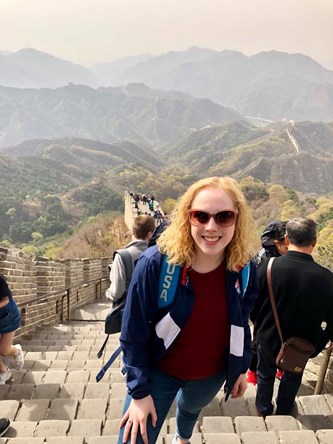 NRAW: Do you have a favorite shooting facility or range from another country?
NRAW: Do you have a favorite shooting facility or range from another country?
GT: The best range I've ever been to was actually in South Korea. It was just gorgeous. It was a beautifully done range and newly built. It had this walkway up, and it had the flags of every single country that was represented and flowers everywhere. It was just really pretty and well taken care of.
My favorite city I've ever been to was actually Ljubljana in Slovenia. That's just, to me, the perfect city: the layout, the size of the city, the history, the natural beauty, the food. Slovenia is kind of on the coast, and the food is a mix between Italian and German, and it's just so good.
NRA: What were you there for?
GT: I was actually there for a training camp in 2017, and it was really fun because it was just me, my coach and a few people from the Slovenian team. Some training camps are very serious. You’re on the range 8 hours a day, and you're collapsing into bed every night. Some training camps are a little more fun, and this was one that was a little more fun. We would go work out every morning and then we would go train for maybe 4 hours. Then we would go do some sort of sightseeing in the afternoon and evening. We would go to the beaches, to Venice, hike to the waterfalls or walk throughout the city and see some live bands.
NRAW: Do you have any advice to share with our readers about traveling internationally for shooting or even just getting involved in it?
GT: Once you start traveling internationally, it opens up a whole new world. My only caution would be: You cannot wing it. You can't just hop on a plane and go. There is so much research that needs to be done to get the visas and gun permits and then simple things like what type of adapter do I need …
At first, I felt like I knew nothing, and now it's funny to have the younger shooters on their first trip come to me for advice. It's a full circle moment for me. There's definitely a lot of planning involved and it’s not always for the faint of heart. It’s 30 hours of traveling and then you're stuck in customs for hours. Then, the next day, there’s practice, so it can be hard. But it's also, I think, one of the most rewarding things, and it's also an honor. Not everybody just gets to pick up and leave the country and go traipsing around the world doing what they love. You kind of have to earn it, and you have to take it as a serious obligation; it's a business trip, not a vacation.
That’s what they always say about the Olympics: Every four years there’s a three-week period that brings the whole world together. But in every different sport, that’s going on every single day: bringing the whole world together.
Follow Thrasher via her website and on Instagram (@ginnythrasher), Twitter (@GinnyThrasher) and Facebook as she prepares for the Olympic trials in May and then the Olympics in July.













